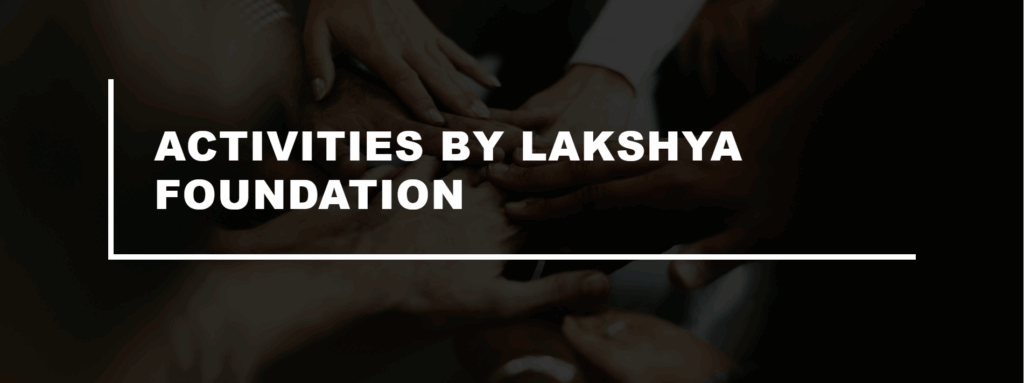
- Research
- Training
- Community
- Education Material
- Completed
- Ongoing
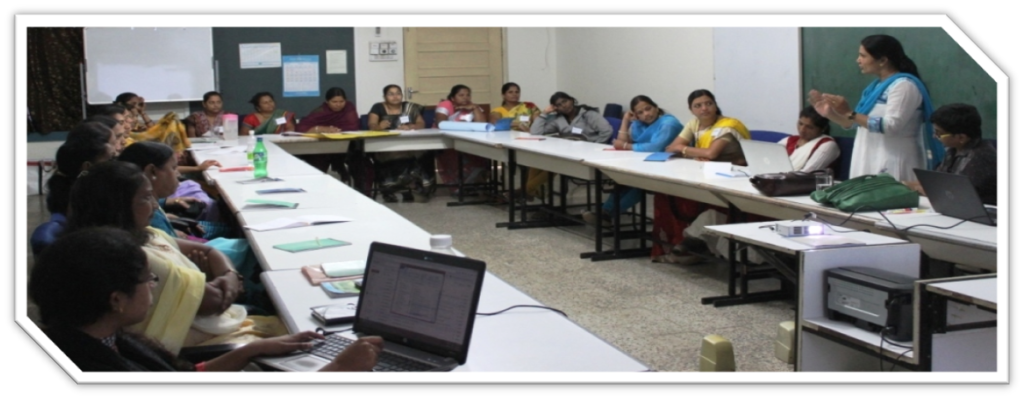
- Lakshya field workers approached 1200+ HIV infected pregnant women in four districts of Maharashtra namely, Sangli, Satara, Pune and Thane and provided counseling on prevention of mother to child transmission of HIV and linked them to care. These activities were conducted after approval from National AIDS control organization of government of India and Maharashtra. Social scientists also conducted in depth interviews with outreach workers and HIV infected women to understand what challenges they face in accessing HIV care in government hospitals. They also conducted interviews to find out if the training conducted by Lakshya had an impact on increasing knowledge about HIV and hence if there is increase in proportion of women initiating anti-HIV medicines, increase in proportion of women opting for exclusive breastfeeding and HIV testing for babies for 18 months.
- Educational activity workshop for HIV infected women was conducted.
- 35 female participants and 15 staff members participated in the workshop. The purpose of the workshop was to appreciate these participants keeping adherent to study visits and drugs and maintaining good retention. Their valuable contribution will help in advancement of science and HIV drugs. The purpose was also to empower these women with key messages related to HIV infection, drug adherence, TB, nutrition and parenting so that they can adopt the information in their daily life and change oneself for betterment of their own health and their children’s health as well.
- The workshop started with session on HIV/AIDS and Tuberculosis (TB). Dr. Sandesh Patil, MBBS, DGO, Gynecologist who conducted an interactive session by using audio-visual aids, on difference between HIV and AIDS, modes of HIV transmission, HIV testing, PPTCT program, Ante-retro viral Therapy (ART) and ART adherence.
- Dr. Medha Kulkarni, MD, Ph.D, and Prof and Head at Dr. D. Y. Patil College at Ayurved and Research Centre, Pune, guided participants on nutrition for themselves and their children.
- Session on Parenting was taken by Dr. Ujjwal Nene, Consultant Psychologist at K. E. M. Hospital.
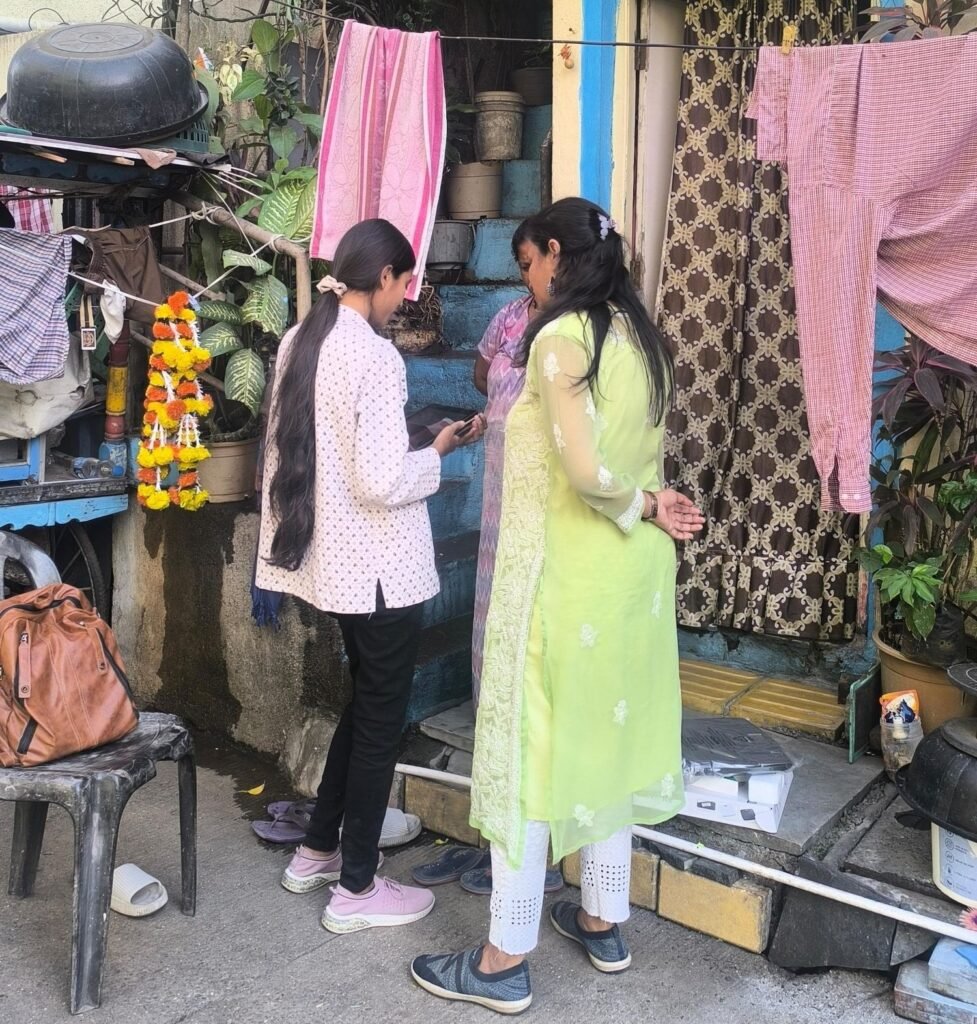
This research aims to examine the prevalence, patterns, and factors contributing to tobacco
addiction among women. Study will also pilot test effectiveness of intervention sessions on
health education regarding tobacco use among tobacco users.
The findings will help guide adapting tobacco health education intervention and inform policy
recommendations to address this critical public health issue. A house-to-house survey will be
conducted in this study, and eligible women will receive health education intervention.
Principal Investigator: Dr. Gauri Dhumal
Study Duration: 1 year (January – December, 2025)
Supported by: Healis Sekhsaria Institute for Public Health
Activity Report
Lakshya a Society for Public Health Education & Research 2023-24
Lakshya A Society for Public Health Education and Research, Activity Report Years 2021 and 2022
Publications
A mobile health‐facilitated behavioural intervention for community health workers
Acceptability and feasibility of a behavioral and mobile health intervention
Challenges and opportunities for outreach workers in the Prevention of Mother to Child Transmission of HIV (PMTCT) program in India
Does knowledge impact adherence
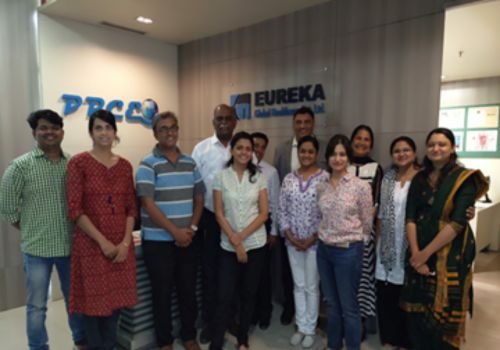
Training on data management and QC processed was conducted for PPCE. It was a one-day training. Topics covered were
Importance of childhood vaccination
Vaccine immunogenicity
Associated risks & adverse reactions
Safety and adverse event reporting
Data management and quality control.
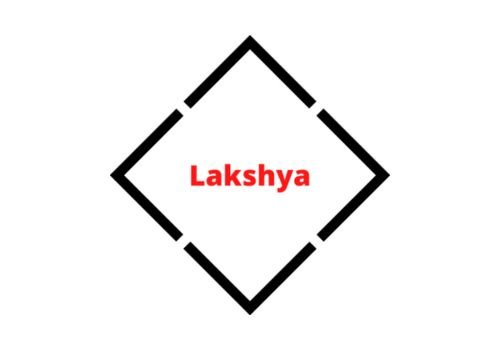
Lakshya Leadership mentored everal students from international universities as well as indian universities on research methodology, quality control and quality assurance of research data, how to develop data collection tools and qualitative research methods, statistical analysis and on various research topics related to TB & HIV. These students were also given opportunity to work with community and observed how outreach workers and staff interact with patients in community keeping confidentiality of their HIV status.
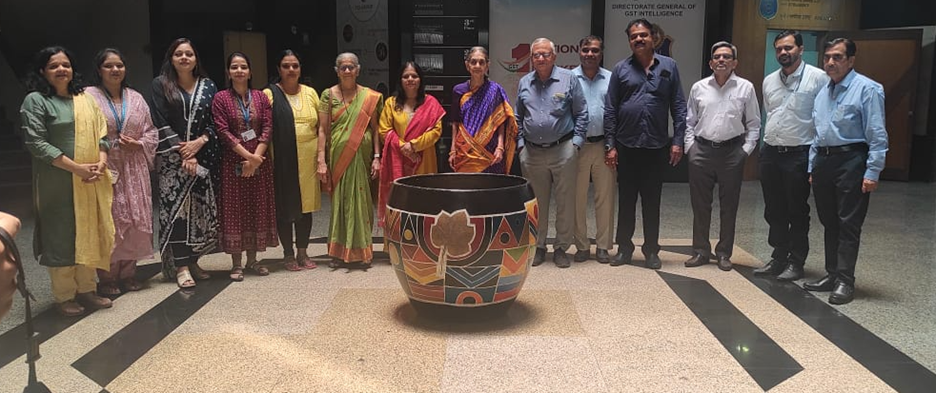
Lakshya organize comprehensive training program aiming at equipping Ethics Committee (EC)
members and researches with a thorough understanding of Indian regulatory guidelines.
Lakshya had the privilege of leading Ethics Committee (EC) training programs across
various academic and research institutions. These sessions are designed to build
capacity of Ethics Committees in research ethics, regulatory compliance, and the
protection of human subjects involved in clinical and public health research. Through
these interactive trainings, we aim to strengthen institutional ECs by enhancing their
understanding of national and international ethical guidelines, informed consent
processes, risk-benefit assessments, and good clinical practice (GCP) standards. ECs
thus can ensures that clinical trials and related research activities are conducted in full
compliance with Indian regulatory requirements. This, in turn, promotes the protection of
participants’ rights and safety while maintaining the integrity of the research process.
This initiative reflects Lakshya’s commitment to promoting ethical research practices
and supporting institutions in maintaining the highest standards of integrity and
accountability in human research.
The list of institutions where ECs, staff, PhD students were trained in HSP, GCP,
national and international regulations to conduct clinical research by Dr Nishi
Suryavanshi and Dr Smita Nimkar
1. Aundh Chest hospital, Pune
2. Ethics committee, B J Govt Medical College
3. Delek Hospital Ethics committee, Dharamshala
4. Lakshya Ethics committee, Pune
5. Pol Ayurvedic Hospital, Mumbai
6. Maharashtra University Health Sciences, PhD Program, Nasik
7. Charak Pharmacy College, Pune
8. D. Y. Patil Medical College, PunePage 2 of 2
9. Medical faculty of Govt. medical colleges in Maharashtra
Trainers and Ethics Committee members (Training conducted on 17 th April 2024)

Dr. Nikhil Gupte organized a workshop on Biostatistics for personnel involved in clinical research. The workshop was intended to accomplish the following:
- Understand the basic concepts of data
handling - Will be able to perform basic analysis
- Researcher & the statistician will be
speaking the same language - Will be able to review & interpret the analysis reports generated by the statistician
- Will be able to draft statistical sections of manuscripts
- Will be able read & understand statistical sections in the manuscripts you review
The duration of the workshop was 1 month with 2 1.5 sessions per week.
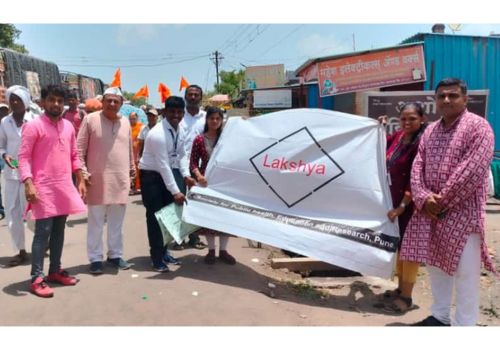
With the help of volunteers, Lakshya Trust completed the “Activity of Health awareness and distribution of useful supplies, to protect health” to Varkaries on 18/Jun/2023.
Reason for the activity: Every year, lakhs of people across the entire Maharashtra participate in “Pandhari Vari”. It is a good opportunity to promote and enhance health awareness among people during Vari. The possibility of the spread of air-borne (including TB) and water-borne infections is a major threat to the health system during Vari. Therefore, we thought to provide health education and to distribute materials to promote healthy practices to Varkaries.
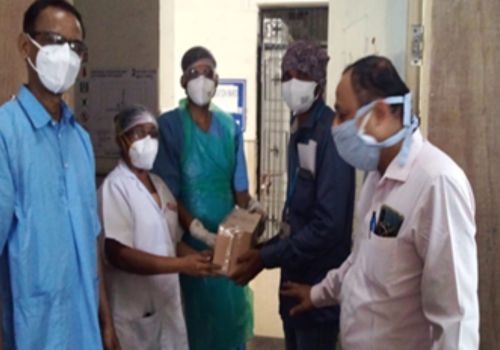
During this second wave HCWs are working day and night in COVID wards with no food for 6-8 hours. We decided to give a small health drink to them at the end of their duty hours. We are distributing these to doctors, nurses, ward boys and Aaya’s taking care of COVID patients admitted in Sassoon Hospital and Aundh Civil hospital. So far XXX health drinks have been distributed
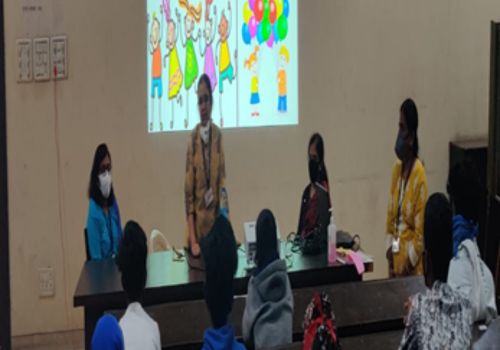
This program focused on creating HIV awareness and care of adolescents living with HIV. This program was conducted in collaboration with BJGMC-JHU CRS TREAT ASIA Team. About 20 adolescent and their parents attended this program. The focus of the program was to spread awareness about nutrition, regular testing of CD4 and viral load, and adherence to ARV treatment.

A workshop was conducted where women discussed their problems with other women like them. Participants of the workshop felt that they are not alone and there are several women in similar situations as theirs. During the workshop games were conducted which resulted in several light moments that made the participants happy, they were relaxed and made new friends.
Information was provided by trained Nutritionist on how to use basic household ingredients to create highly nutritional food items.
Clinical psychologist from Sassoon General Hospitals discussed about mental stress and how to relive it with simple mechanisms.

Street play was staged depicting importance of taking regular ARTs and clinic visits.

Lakshya produced 4 videos focusing on NACO PMTCT program. Each video focused on one PMTCT module. The 4 modules studies were
- ART at delivery
- Exclusive breastfeeding
- Six weeks of NVP to infants and
- HIV testing of infants at 6 months.

Lakshya conducted a workshop for empowerment of HIV positive women.
This workshop was a residential workshop where 12 women participated and were given extensive life skill, capacity building training. Data collection tools and workshop material were developed by Lakshya. Workshop was conducted at Sai baba seva trust at Kanhe. Although 15 participants agreed to participate only 11 participants participated and 9 completed the training. The workshop focused on various aspects of life such as relationships, body, Sexuality, Money, Work, and Emotions. Workshop started with small group exercises, group discussion, body mapping and psychological therapies and ended with deriving personal goal for herself and ways to achieve it. These activities helped women to express their problems, concerns, emotions which otherwise are “silent”. This three-day residential workshop gave them the opportunity to be away from their routine work and just to think about them, open up share their problems with many women like them. There were many light moments that made participants happy, relax, laugh, spend some time with oneself, and make new friends among the group. These women have shown 100% retention, not missed any study visit and develop confidence. A study was written in collaboration with John Hopkins university between May 2011 and Dec 2012. Preparation for an implementation science study. Under the current DAC PMTCT guidelines, there are already challenges to the adherence to HIV services, Option B+ will require even longer periods of adherence. Therefore, it is important to identify implementation strategies to optimize the public health impact of the new PMTCT guidelines. The central hypothesis is that the intervention proposed will result in optimized program implementation for each of the four key PMTCT components. Hence this study in collaboration with MSACS, will address key barriers to the uptake of the new DAC PMTCT components. Through the optimized implementation of the four PMTCT components, we expect to see enhanced uptake and adherence to the four key components of the Option B+ PMTCT program by HIV+ pregnant and breastfeeding mothers and improved health outcomes for both the mothers and babies. The study will test the impacts of intervention in an effort to optimize implementation of the national PMTCT program. Our partnership with MSACS ensures that the design of our intervention and the results of this study will be locally relevant and inform the national program. This study was submitted for funding to CDC, Atlanta, US.

More than 3500 women were given information on HIV, difference between HIV and ADIS, mode of HIV transmission and HIV during pregnancy. Importance of HIV testing during pregnancy was discussed in detail. In addition to this, treatment strategies for HIV during pregnancy were discussed.
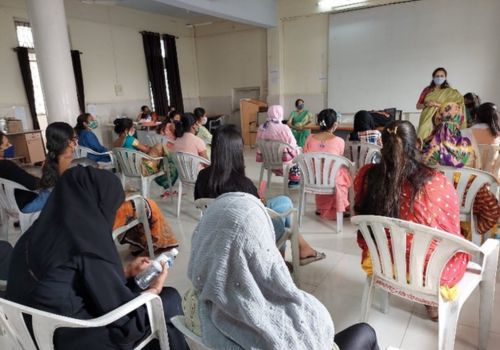
A workshop was designed to create awareness empower women survivors of MDR TB. Empowerment focused on decision making on reproductive health, stay psychologically strong, and nutrition requirements to stay healthy.

The only way to significantly reduce the risk mother- to-child transmission of HIV is to prevent women becoming infected. This can be effectively achieved through education, empowerment, and promotion of HIV prevention tools such as use of condoms. All women have a right to HIV testing and counselling, but this is especially true for pregnant women and new mothers. This facility was provided by Lakshya to mothers who belong to low socio- economic strata.
Lakshya developed Patient education material for infant feeding counseling in collaboration with experts from all over the world. It was conceptualized to reduce the risk of HIV transmission from mother to child. In India breast feeding is the cultural standard of care for infant nutrition and care. We have developed education material on infant feeding and counsel women how they can exclusively breast feed their babies and reduce transmission of HIV transmission.
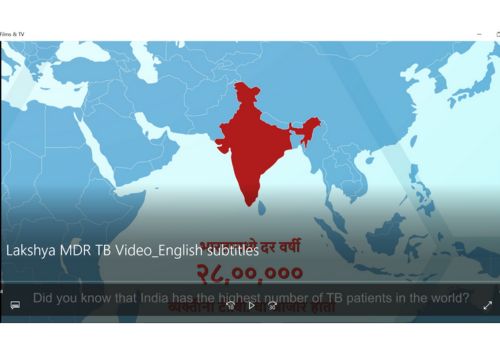
Lakshya produced a video on MDR TB to create awareness about clinical research on MDR TB prophylaxis. The video was shot in Marathi with English subtitles. This video was shown to family member of MDR TB patients. The contents of this video were
- MDR TB disease
- prevention of MDR TB among household members
- importance of adherence to treatment
- side effects of MDR TB drugs &
- importance of participating in research related to MDR TB.
